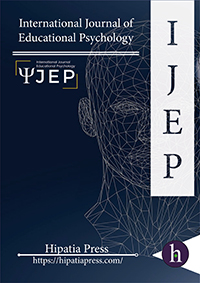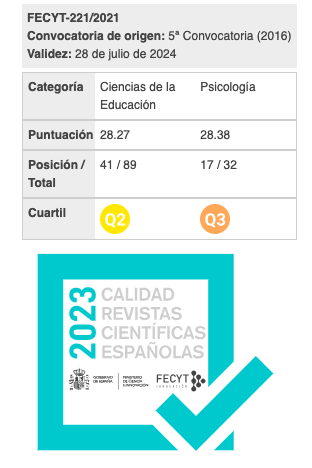Young Children about School: Whose Voices Do We Hear?
Keywords:
Downloads
Abstract
School is one of the important educational practices, in which children are actively involved. When we want to contribute to the development of young children’s voices, we need deeper insight into the way children act as they do. Therefore, we have to distinguish how young children’s voices are composed, as we proclaim that all voices are essentially polyphonic. We found children’s expressions which were not corresponding with their own teachers’ and parents’ expressions. Many of the presented examples of non-corresponding expressions by the children, refer to situations in which resistance, one of the identifiers of voice, is shown. This article is part of a larger study we conducted on young children’s voices. In our research we want to explore the content of young children’s voices and the meaning they attribute to the educational contexts they are involved in. We conducted five case studies with young children, aged 5-6, in school. We have analyzed their expressions and presented our findings earlier. In this phase of our research project we are looking for possible correspondences between the children’s expressions and the expressions of their teachers and parents
Downloads
References
Bahktin, M. M. (1981). The Dialogic Imagination. Four Essays by M.M. Bakhtin. Edited by
Google Scholar CrossrefM. Holquist. Austin: University of Texas Press.
Google Scholar CrossrefBronfenbrenner, U. (1979). The ecology of human development. Experiments by nature and design. Cambridge, Mass.: Harvard University Press.
Google Scholar CrossrefEteläpelto, A., Vähäsantanen, K., Hökkä, P., & Paloniemi, S. (2013). What is agency? Conceptualizing professional agency at work. Educational Research Review, 10, 45–65. doi:http://dx.doi.org/10.1016/j.edurev.2013.05.001
Google Scholar CrossrefEthical Code for Early Childhood Researchers. (2014). www.eecera.org.uk/docs/EECERA_ethical_code.pdf
Google Scholar CrossrefHargreaves, A. (2003). Teaching in the Knowledge Society: Education in the Age of Insecurity. New York: Teachers’ College Press.
Google Scholar CrossrefHedegaard, M. (2008a). A cultural-historical theory of children’s development. In M. Hedegaard & M. Fleer, Studying Children: A Cultural-Historical Approach (pp. 10-29). Maidenhead: Open University Press.
Google Scholar CrossrefHedegaard, M. (2008b). Principles for interpreting research protocols. In M. Hedegaard & M. Fleer, Studying Children: A Cultural-Historical Approach (pp. 46-64). Maidenhead: Open University Press.
Google Scholar CrossrefHolland, D., Lachicotte Jr., W., Skinner, D., & Cain, C. (1998). Identity and Agency in Cultural Worlds. Cambridge/London: Harvard University Press.
Google Scholar CrossrefKjørholt, A. T. (2005). The competent child and ‘the right to be oneself’: reflections on children as fellow citizens in an early childhood centre. In A. Clark, A.T. Kjørholt, & P. Moss (Eds.), Beyond listening. Children’s perspectives on early childhood services (pp. 151-173). Bristol: The University Press.
Google Scholar CrossrefMayall, B. (2008). Conversations with children. Working with generational issues. In P. Christensen & A. James (Eds.) (2nd ed.), Research with children. Perspectives and practices (pp. 109-124). London: Routledge.
Google Scholar CrossrefMeadows, S. (2010). The Child as Social Person. London: Routledge.
Google Scholar CrossrefMiles, M. B., & Huberman, A. M. (1994). Qualitative data analysis (2nd ed.). London: Sage.
Google Scholar CrossrefMoscovici, S. (1981). On social representation. In J. P. Forgas, Social Cognition (pp. 181-209). New York: Routledge.
Google Scholar CrossrefRainio, A. P. (2010). Lionhearts of the playworld. An ethnographic case study of the development of agency in play pedagogy. Helsinki: University Print.
Google Scholar CrossrefRobson, C. (2011). Real world research (3rd ed.). Chichester: Wiley.
Google Scholar CrossrefStrauss, A. L., & Corbin, J. (1998). Basics of Qualitative Research. Techniques and Procedures for
Google Scholar CrossrefDeveloping Grounded Theory (2nd ed.). London: Sage Publications
Google Scholar CrossrefAuthors (2015).
Google Scholar CrossrefAuthors (2012).
Google Scholar CrossrefAuthors (2016).
Google Scholar CrossrefWertsch, J. V. (1991). Voices of the mind. Sociocultural approach to mediated action. Cambridge, MA: Harvard University Press.
Google Scholar CrossrefWertsch, J. V. (2002). Voices of collective remembering. Cambridge: University Press.
Google Scholar CrossrefYin, R. K. (2009). Case study research. Design and methods (4th ed.).Thousand Oaks, California: Sage.
Google Scholar CrossrefDownloads
Published
Almetric
Dimensions
How to Cite
Issue
Section
License
All articles are published under Creative Commons copyright (CC BY). Authors hold the copyright and retain publishing rights without restrictions, but authors allow anyone to download, reuse, reprint, modify, distribute, and/or copy articles as the original source is cited.
















